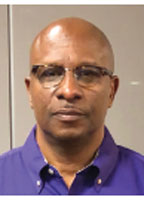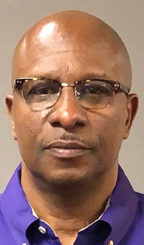
Frank Gaines, Ph.D.
Last of a 4 Part 4 Series
The upcoming presidential election has been the dominant headline for quite some time. The COVID-19 pandemic shutdown and subsequent health and economic crisis has commanded worldwide focus and attention most of this year. But the horrific and tragic murder of George Floyd at the hands of police, a Black man, has galvanized and impacted the world in ways none of us could have imagined. This 4-part series looks at the interconnectedness and impact those events can have to affect a positive impact on education. Frank Gaines, Ph.D.
Stakeholders that include legislators, administrators, and bureaucrats in environments resistant to change may be more open-minded now than ever before as tensions have reached a crescendo and they look for answers. Use the fact we may now have the best captive audience ever for change. Advance the causes most critical to improving opportunities for student success. Students in Black and Brown communities have faced learning over the past few months without the requisite tools and technological literacy of their mainstream better funded privileged counterparts.
We will find that deficits in access to hardware, software, and lack of familiarity with virtual curricula and instruction have exacerbated the situation. Learning has been transitioning for quite some time to a virtual world, but primary and secondary education have resisted. Stop the resistance. Locally, advocate for all students to have the basic tools they need. Initiatives to provide hardware, software, and infrastructure should be basic provisions for students in our communities. It can be done at a fraction of the cost of current learning tools and resources, but it will involve breaking old educational paradigms and building partnerships that redirect financial resources. And that will not be an easy task but consider what is best and what’s needed for students in disenfranchised communities.
Connect learning to changing the human condition to make school relevant. School cannot just be about reading, writing and arithmetic. That has not had a substantive impact on urban education ever. The goal for students of color must be to increase 4-year college matriculation rates, build vocational pathways, and identify entrepreneurial opportunities within their lived-in communities. Improve opportunity structures for students by developing definitive pathways and tracks for student exposure, access, and experiences through paid internships in the business, government, vocational, and the entrepreneurship sector. Couple that with funded college and cultural enrichment tours in the spring and summer to provide students access to the possibilities that exist outside their lived-in communities. This can be accomplished through collaborations by organizations that should include the local Divine 9 Greek letter service organizations as well as representation from the NAACP, Urban League, National Alliance of Black School Educators, Opportunities Industrialization Coalition (OIC) and others. The Divine 9 organizations unified locally through the Pan Hellenic Council hold the potential for social, political, and economic impact and ultimately opportunity impact that is exceeded by no other collective body of influence. A fact underscored by their individual success and influence on every aspect of life we know due to their professional undertakings.
Learning disconnected from changing a student’s human condition does not create a captive audience. All students invest in something; if they’re not getting a return on what you are selling, they will seek otherwise. Eradicate this disconnect. Link education to changing the human condition, not just changing test scores. Changing the opportunity changes the motivation. Additional resources tied to opportunity, not the school-to-prison pipeline, must be allocated. At a time when educational budgets are sure to be constrained, do not let the constraints effect the most strain on urban students of color. The politics of social, educational, and economic change are local. Be sure students in pockets of poverty are spoken for. It is the responsibility of all of us, but it begins with those of us who have the platform and the microphone, and it must be an accurate depiction of their situation. Those most affected must have an opportunity to speak. They can only speak through those closest to them. Who has the courage to speak up and sustain that conversation and tie it to action that gives them voice and faith in the educational process?
George Floyd’s death has inspired a nation and the world. Speak truth to justice followed by speaking truth to power. Couple it with a demand for justice and equity in all aspects of our lives. Speak your truth. To stand quiet is to cast a vote in favor of maintaining the status quo. Let this moment be a movement for change beyond justice because justice is only the beginning.
“The individual must have the power to stand up and count for something in the actual conflicts of life.” –– John Dewey
“I’m for truth, no matter who tells it. I’m for justice, no matter who it’s for or against.” — Malcolm X



Be the first to comment